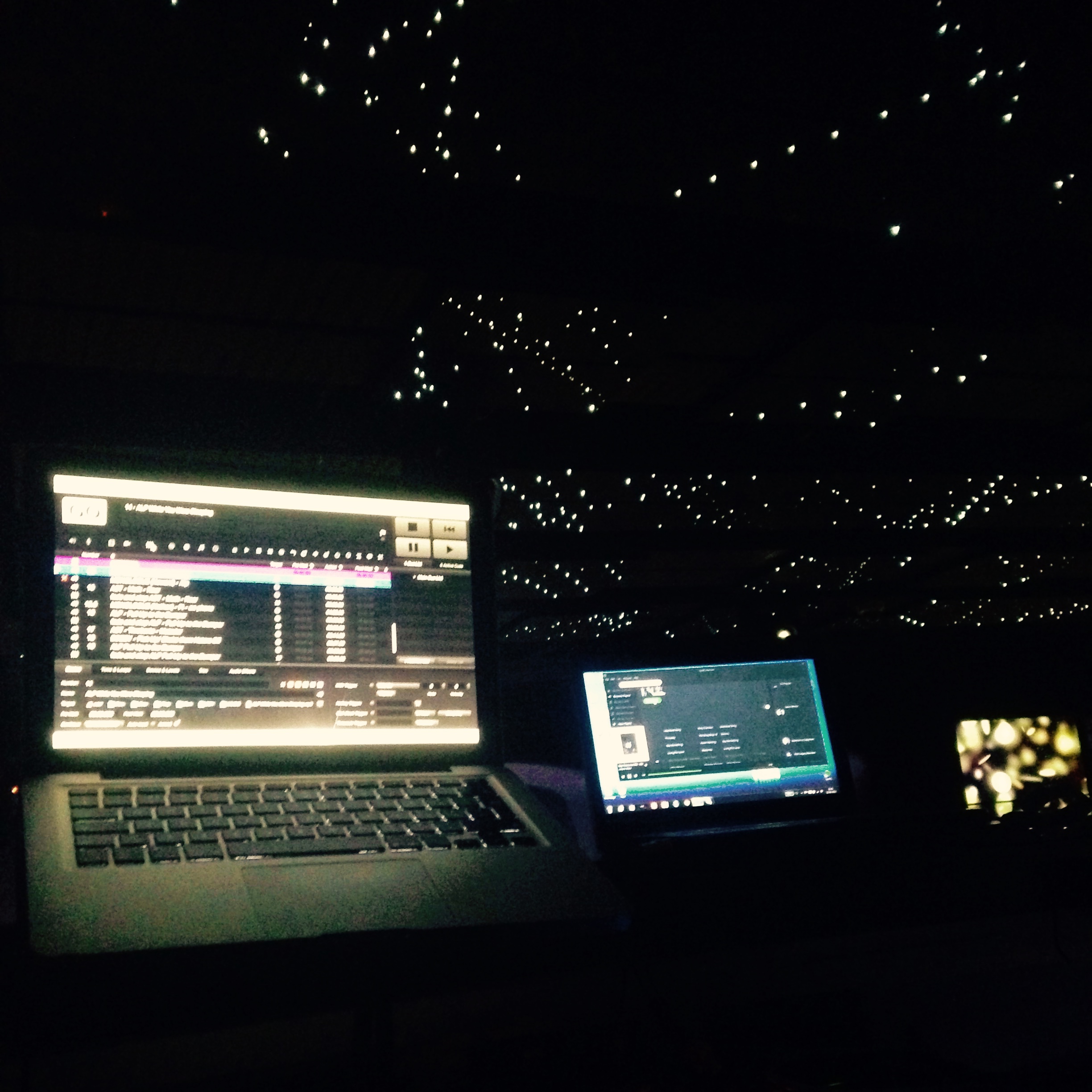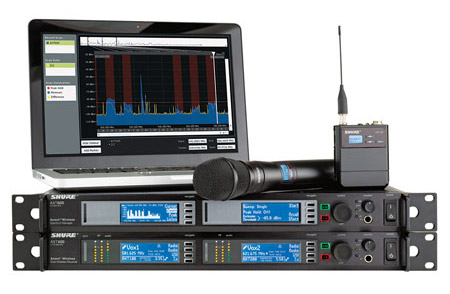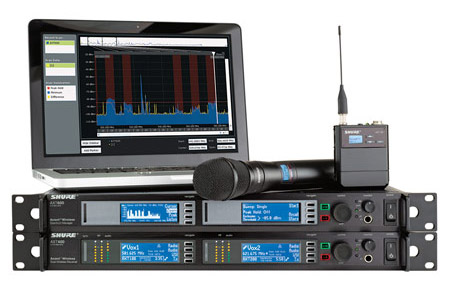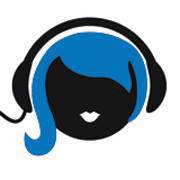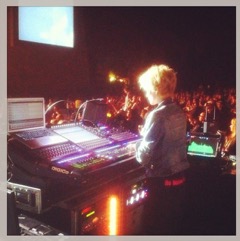
Thriving on Chaos – Karen Weigold
Karen “Keeks” Weigold grew up in Toronto, Ontario (Canada). She was always passionate about arts and spent the first 18 years of her life as a dancer. When the time came to apply for post-secondary education, her love for the entertainment industry pushed her to attend the Toronto Film School’s Sound Industry Program. While at the college, she met artist & producer Dan Hill. Dan offered her an internship in his home studio, and soon she was skipping classes in favor of recording band demos. It was while working at the studio that she was introduced to some live sound techs. By shadowing these techs, Karen got her taste for live sound. Her first live sound gig was at The Big Bop, a now-defunct venue in Toronto. Karen describes her live sound training as being “the hands-on “sink or swim” method.” She believes in taking chances and trying out new things to figure out what works, and what doesn’t. She credits Dan with pushing her into the live world, as he recognized that she thrived on the chaos that is often present at shows.
As a touring freelancer, Karen has worked as front of house, monitor engineer, tour manager and production manager. Her first touring gig was mixing monitors for Ian Thornley of Big Wreck. She was offered this job by her friend Sean Palmer (current FOH for The Used) who was Big Wreck’s FOH at the time. After spending two days working with Karen at The Mod Club, he was so impressed with her work ethic that he offered her the monitor engineer position, even though she had no touring or digital board experience. Never one to be scared of a challenge, Keeks prepared by reading the Avid SC48 manual beforehand. On her first day on the gig, Sean gave her a crash course on the board’s most important functions. She recalls that first show as being stressful but exciting, as she was running five stereo in-ear monitor mixes, five-floor wedges, a drum sub and side fills. The show went well and was a great learning experience. She was welcomed to the crew and proceeded to work with Ian Thornley, as well as with Big Wreck when they reunited, for four years.
During this time, she also worked as FOH/TM for Hollerado, Wildlife and Alyssa Reid before landing a FOH gig mixing The Weeknd. Karen spent a surreal 2.5 years with The Weeknd, mixing all over the world. From there, she spent a year with Irish band Heathers, mixing in Europe, Canada, the US and even a short stint in Malaysia. Since 2013, she has spent the majority of her time out on the road as FOH/TM of Toronto darlings July Talk. When she’s not travelling the world, Karen can be found working as a house tech for The Mod Club, Danforth Music Hall and the Phoenix Concert Theatre.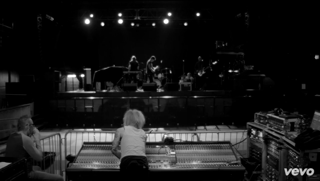
I first met Karen when she came through Café Dekcuf in Ottawa with Heathers. As I watched her take charge of the stage set-up and flip her MC7L board alone, I thought to myself: “damn, this is a woman I want to know!” I’m happy to say that she’s now a friend, and is always up for giving me some tech or life advice. I asked her a few questions about her experiences as a sound tech before she headed out on a US tour with July Talk.
Karen describes the best part of touring as travelling and “being able to be a part of something special and unique each night. I feel incredibly lucky to be included in some of the magic I’ve been a part of since 2009. The artist trusts you as a sound person to convey to the world what they’ve poured their hearts and souls into! It’s a pretty incredible thing.”
She also thrives on “working in a new venue every day, with different gear and different challenges; sometimes it’s great, and sometimes you need to figure out how to make it great.” She acknowledges that being faced with different set ups every day can be difficult, but that this is what ultimately makes you a better tech. When given the chance, Karen loves to work with Midas Heritage 3000’s and DigiCo Consoles, Waves plug-ins, outboard graphs, TC Electronic D-Two’s, Sennheiser 421’s and Avalon 737’s.
Her biggest dislike of touring is the food: “When you’re not privy to catering it can be pretty awful at times… I try to stay as healthy as I can on the road, but sometimes gas station bananas don’t cut it and you just need to hit the In-&-Out to animal style your night!”
For those looking to get into touring, Karen says some must-have skills are being patient, having a sense of humor, knowing how to Tetris gear, being understanding, open to learning, and knowing how to multi-task.
In regards to finding the right artists to work for, she adds: “if it feels good, do it. If it doesn’t, it’s not worth it. I’m referring to working with/for people who make you a better person and give you a sense of accomplishment, happiness and respect. I’ve been on tours (and know a lot of people who are/were on tours) that were not great experiences mentally or emotionally. Why put yourself through that? At the end of the day it’s all just rock and roll, we’re all here for the same reason. Touring work needs to be supportive, respectful and professional. If you can’t count on your road family, then you need to find a new one.”
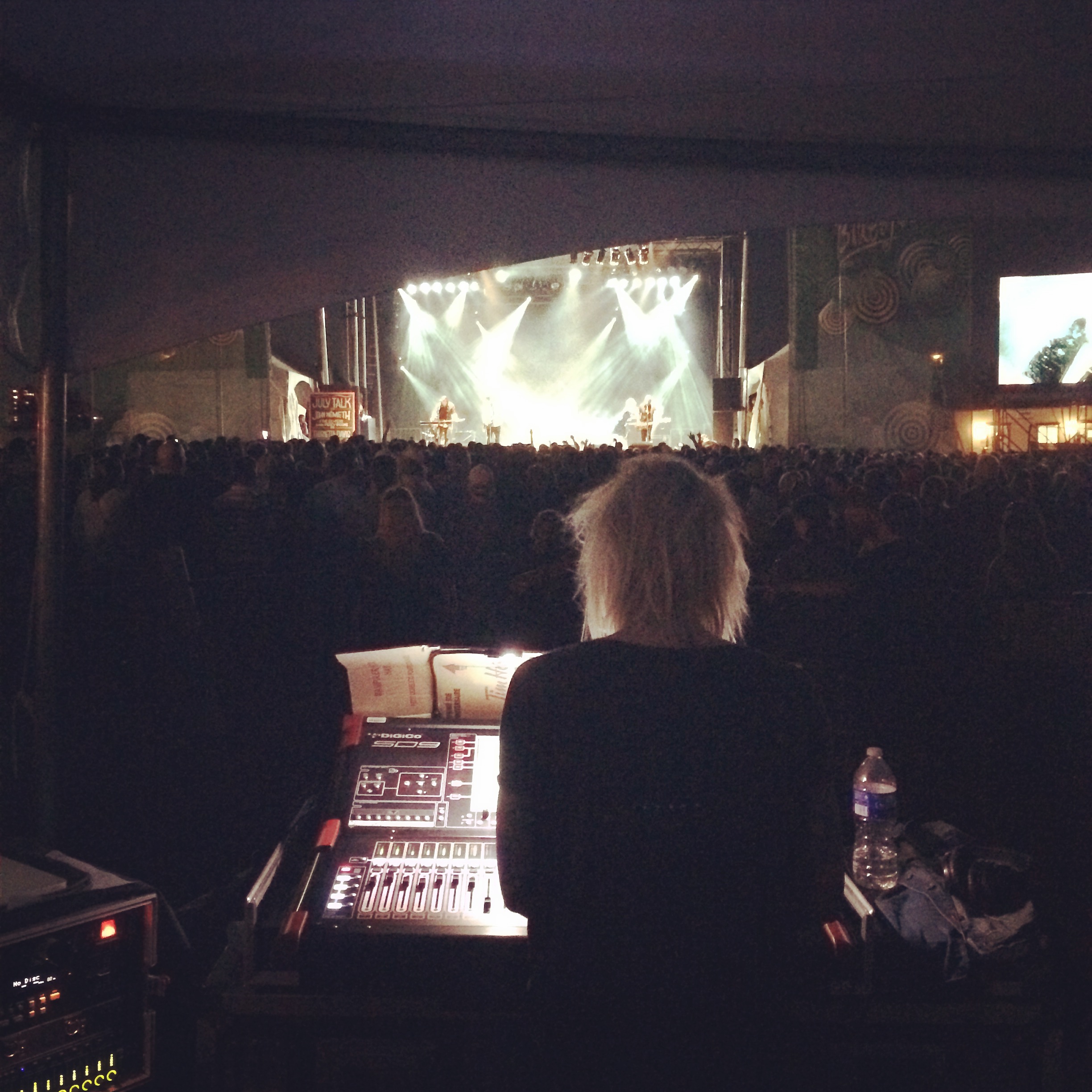 Much like many women in this industry, Karen has experienced sexism, both on the road and while at her house gigs. She believes the industry is slowly changing but still considers sexism to be the biggest obstacle she faces on a regular basis. She has been told by venue techs that she isn’t mixing the show and even been laughed at when she has announced herself as the band’s sound tech. When faced with these situations, Karen’s advice is to tackle them head-on! She explains: “I wouldn’t ever want the women in my life to feel like they don’t have a voice to be heard, so I try to live my life like that when I’m faced with less than ideal situations. Speak up, do your job the best you can and don’t ever let people make you feel like anything but their equal. Being quick thinking and tactful makes it easier to have the upper hand. Let your work speak for itself. Sexism is someone else’s problem, not mine, and I won’t let it be mine. Don’t get me wrong, I do meet more incredible people than not, some of whom have become some of my closest friends, and in the coming years I’m sure whatever is left of [sexism] will be on it’s last legs.”
Much like many women in this industry, Karen has experienced sexism, both on the road and while at her house gigs. She believes the industry is slowly changing but still considers sexism to be the biggest obstacle she faces on a regular basis. She has been told by venue techs that she isn’t mixing the show and even been laughed at when she has announced herself as the band’s sound tech. When faced with these situations, Karen’s advice is to tackle them head-on! She explains: “I wouldn’t ever want the women in my life to feel like they don’t have a voice to be heard, so I try to live my life like that when I’m faced with less than ideal situations. Speak up, do your job the best you can and don’t ever let people make you feel like anything but their equal. Being quick thinking and tactful makes it easier to have the upper hand. Let your work speak for itself. Sexism is someone else’s problem, not mine, and I won’t let it be mine. Don’t get me wrong, I do meet more incredible people than not, some of whom have become some of my closest friends, and in the coming years I’m sure whatever is left of [sexism] will be on it’s last legs.”
Karen’s long-term goals are to keep working on her mixing skills and to continue touring with great people. She also notes that she never wants to stop learning, and wants to keep surrounding herself with people who inspire her to do better and to be better – this applies to both her personal and work life. I have no doubt she will accomplish these, as she is one of the most hard-working people I have ever met! I wish Keeks all the best on her future tours and thank her for taking the time to answer my questions.
If you would like to contact Karen, she can be reached at standbygold@gmail.com
